Global trading: the good, the bad and the essential
April 27, 2020
This post is written by Lucy McCarthy (QUB), Anne Touboulic (University of Nottingham), and Lee Matthews (University of Nottingham). In our last post, we began our journey considering food supply chains in times of pandemic and we touched upon their history. Here, we further consider some of the flaws in our globalised food systems and …
UK Plant Health Week: A conversation with a plant pathologist
April 21, 2020
2020 is the International Year of Plant Health and April 20-27 is UK Plant Health Week. We spoke to Dr Rumiana Ray, a Crop Pathologist, about the importance of plant health, and what you can do to support keeping plants healthy. You are a specialist in crop pathology, what does that mean? Plant pathologists …
Global food supply chains in times of pandemic
April 7, 2020
This post is written by Anne Touboulic, Lee Matthews, and Lucy McCarthy The public health crisis unfolding before us is unprecedented, unimaginable and catastrophic. It will profoundly impact our values and lifestyles as it exposes the implications of national austerity measures on public services and the precariousness of our globalised production and consumption systems. Food supply chains …
Coronavirus and the food system: a reading list
March 26, 2020
Gardening and growing Growing and gardening while in isolation, by Mark Diacono (Facebook/Telegraph) Land available for allotment use has declined 65% since the 1960s (Institute for Sustainable Food, Sheffield) Food supply chains The UK’s food supply and a call for rational rationing, by Prof Tim Lang (The Conversation) Interview with Tim Lang, by Jay …
Plants for future food security: the case of Bambara groundnut
March 23, 2020
Future Food Beacon researchers in Malaysia and UK are working with partners in Africa and Asia to help secure the future of our food supply. They are doing this by exploring the wider use of crop diversity to fill food production and nutrient gaps, making a diverse range of food crops available and accessible to …
Researching fermentation in cocoa
March 11, 2020
Prof David Salt recently visited the Cocoa Research Centre in Trinidad & Tobago. In this post he reflects on our cocoa project in Colombia, and the work we are developing with the CRC. Our Colombian cocoa project began because we were interested in understanding the connections between the way fermentation works in cocoa beans and …
Measuring metabolites across the food chain: An interview with Dr Tristan Dew
March 4, 2020
Dr Tristan Dew is an Assistant Professor in Molecular Phenomics and a member of the Future Food Beacon. His work explores how mass spectrometry-based technologies can be used to rapidly assess metabolism within plants, animals and humans. In this interview, Tristan talks to Dr Lexi Earl about his research career, reasons for joining UoN, and …
How do plant roots branch towards water?
February 27, 2020
Plant roots need to forage for water and nutrients in the soil. These key resources are not distributed equally through the soil so plants therefore have to send their roots towards the best available sources of water and nutrients. If plants couldn’t flexibly adapt to changing conditions in their environments, they would struggle to thrive …
Collaborations with Embrapa to research Brazilian agricultural practices
February 11, 2020
The Future Food Beacon is developing a working partnership with Embrapa, Brazil. Embrapa, the Brazilian Agricultural Research Corporation, is part of the Ministry of Agriculture, Livestock, and Food Supply and is concerned with generating knowledge and technology for Brazilian agriculture. In late 2018 and early 2019, supported by the UoN International Collaboration Fund, six Future …
The new agricultural bill: soils, sustainability and farming
February 4, 2020
It may have already left your news feed, but a few weeks ago a new agricultural bill was presented in parliament. We spoke to some of our local soil and plant scientists, Prof Sacha Mooney, President of the British Society of Soil Science, and Prof Malcolm Bennett, and Prof David Salt on what the new …
Subscribe by email
About this blog
Future Food addresses challenges of feeding a growing population in an ever-changing world. Our multi-disciplinary researchers are delivering new techniques to solve food issues from soil to molecule to meal.
Useful links
Categories
Recent Posts
- BLA: An R Package for Boundary Line Analysis
- Eating Your Way to a Greener Future
- Can Agriculture Save the Planet? Insights from COP28 and Beyond
- Time to diversify rather than demonize our dietary protein sources
- “I guess it’s quite trendy”: New research explores young meat-eaters’ sustainable food consumption habits.
Tags
Recent Posts
- BLA: An R Package for Boundary Line Analysis
- Eating Your Way to a Greener Future
- Can Agriculture Save the Planet? Insights from COP28 and Beyond
- Time to diversify rather than demonize our dietary protein sources
- “I guess it’s quite trendy”: New research explores young meat-eaters’ sustainable food consumption habits.
Archives
- July 2024
- February 2024
- December 2023
- October 2023
- July 2023
- June 2023
- May 2023
- April 2023
- March 2023
- January 2023
- December 2022
- November 2022
- October 2022
- September 2022
- August 2022
- June 2022
- May 2022
- April 2022
- March 2022
- December 2021
- November 2021
- October 2021
- September 2021
- August 2021
- July 2021
- June 2021
- May 2021
- April 2021
- March 2021
- February 2021
- January 2021
- December 2020
- November 2020
- October 2020
- September 2020
- August 2020
- July 2020
- June 2020
- May 2020
- April 2020
- March 2020
- February 2020
- January 2020
- December 2019
- November 2019
- October 2019
- September 2019
- August 2019
- July 2019
- June 2019
- May 2019
- April 2019
- March 2019
- February 2019
- January 2019
- December 2018
- November 2018
- October 2018
- August 2018

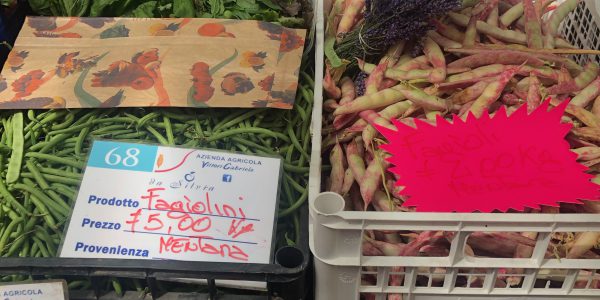
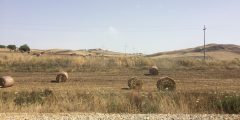


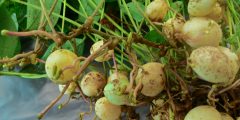
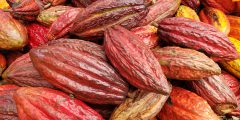

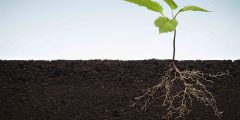


Recent Comments